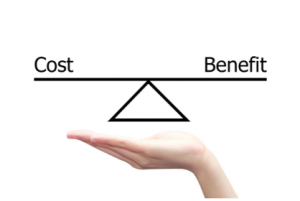
Getting Additional Life Insurance
 If a term life insurance policy is about to expire, you may be able to renew it for an additional period or convert it to a whole life policy. If not, there may be other options available.
If a term life insurance policy is about to expire, you may be able to renew it for an additional period or convert it to a whole life policy. If not, there may be other options available.
Many companies offer a guaranteed whole life insurance policy that may appeal to people approaching the end of life, especially those due to illness.
- Anyone can purchase these policies since they can be taken out without providing any medical information (i.e. no rejections).
- Premiums are based on gender and age when the policy goes into effect and stay the same throughout the life of the policy. However, they are very expensive.
- They have restrictions such as when the policyholder becomes eligible for full benefits.
- The usual time until full benefits kick in is 2-3 years.
- If death occurs before 2-3 years, there is a graded death benefit that is typically based on the total amount of money paid for premiums. Most companies will refund all of this money, along with an additional 8-25% for any interest gained.
- There are companies that don’t pay anything in the first two years.
- The death benefit may max out at $25,000-$50,000.
Be on the lookout for these life insurance scams.
Keeping Your Coverage When You Can’t Pay Your Life Insurance Premium
There are many reasons you may become unable to pay your life insurance premiums, such as your premiums increasing faster than your income, a drop in your income, or unanticipated expenses. Although you can let the policy lapse or surrender it, if possible, for the money, there are ways to keep your insurance coverage if you think you still need it.
If you have a whole life or universal life insurance policy with enough cash value or dividends, you can use it to pay premiums.
- Taking out cash value, but not dividends, will reduce the amount of your death benefit if you don’t pay it back. It may be worth it to you rather than having no death benefit. However, if you deplete your cash value too much, your policy will lapse and you will have nothing
- Most life insurance companies will let you lower the amount of your death benefit in exchange for a lower premium. You may be able to lower the face value of a permanent life insurance policy enough that the carrier may consider you “paid up” allowing you to stop paying premiums entirely.
- Dropping policy riders may reduce your monthly costs to an affordable amount.
- You may be eligible to add a disability rider that can pay for the premium or a waiver of premium rider that allows you to stop paying premiums while keeping your benefits in place. Your disability must meet your carrier’s qualifications and you will need to contact them as the requirements vary among carriers.
- If you have whole life or universal life insurance, you may be able to switch to term life insurance which has much lower premiums. If you can’t switch, you may have enough cash and/or surrender value (minus any fees for cancellation) to buy a term policy.
Why Death Benefits May Be Withheld
 There are times when a life insurance company will refuse to pay your death benefit. This is usually when you owe too much in premiums or your death was intentional or otherwise not due to natural causes.
There are times when a life insurance company will refuse to pay your death benefit. This is usually when you owe too much in premiums or your death was intentional or otherwise not due to natural causes.
If you commit suicide within the first two years after getting the policy, it will be interpreted as you intentionally taking advantage of the company and the death benefit will be withheld.
Insurance companies withhold death benefits if you are murdered by a beneficiary.
Insurance companies will nullify your policy if:
- You replace your coverage and stop paying premiums on or surrender the policy.
- You intentionally withheld information from them, such as risky habits or medical conditions, to improve your chances of getting life insurance at a lower price;
- You died of an undisclosed dangerous activity that would have raised your premiums or even disqualified you from getting life insurance; and/or
- Other types of application fraud were found.
Other situations where a life insurance company may not pay your death benefit include:
- If the beneficiary has no insurable interest in the event of your death;
- If you die while committing a crime or participating in an illegal activity;
- If you are a civilian who is killed in a war or by an act of war such as being a journalist who goes into the midst of battle on a regular basis, or you travel to regions of the world where there’s armed conflict; and/or
- If you purchase a life insurance policy while living in the United States and then move to another country, a clause in the policy could exclude payment if you are not living in the U.S. when you die.
